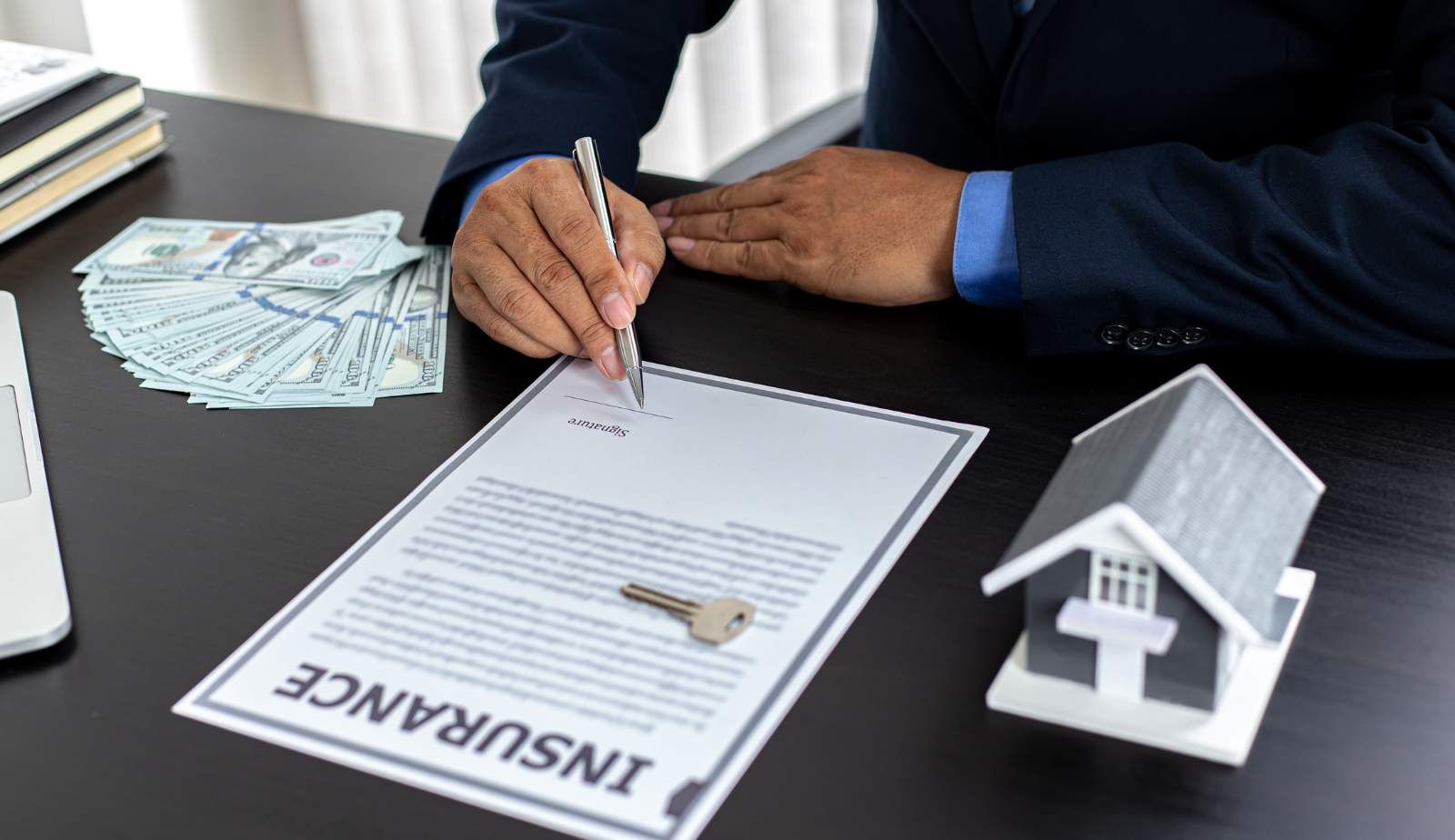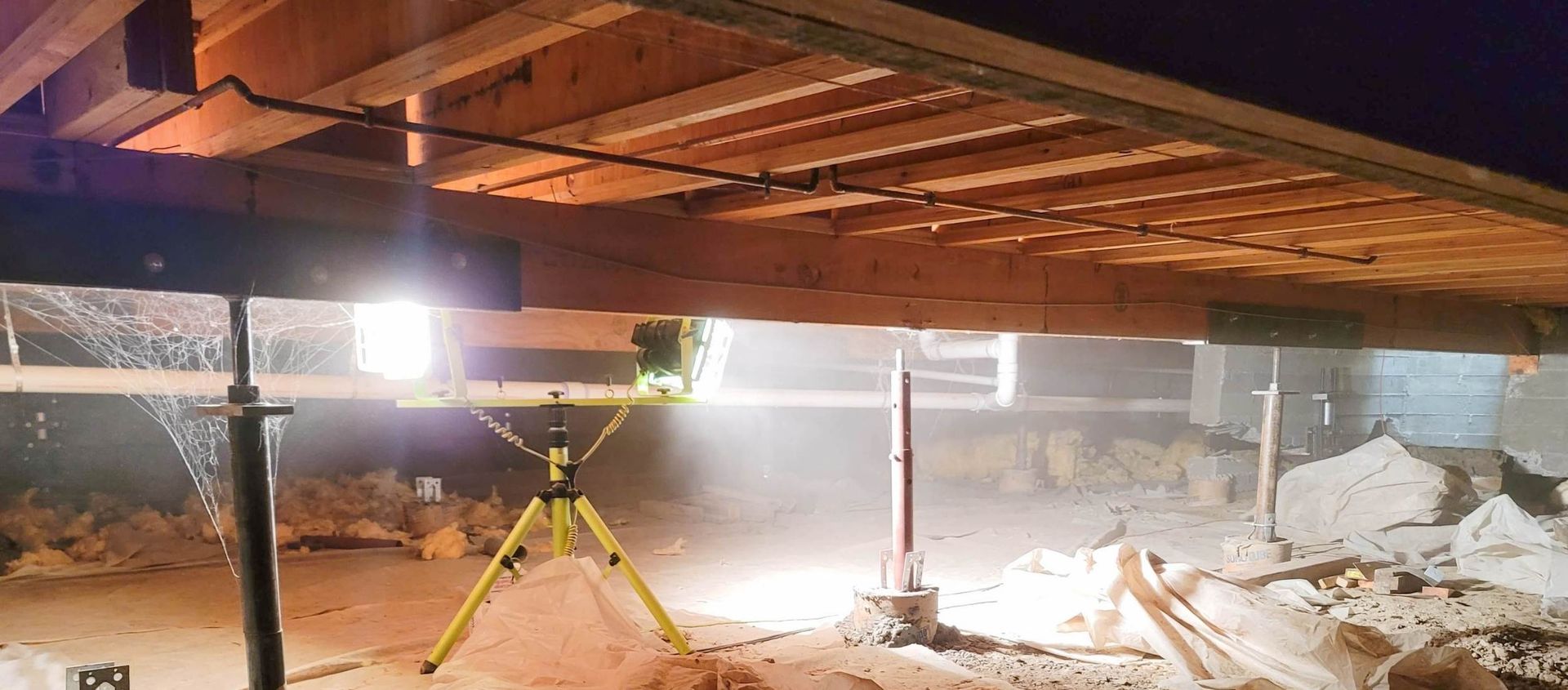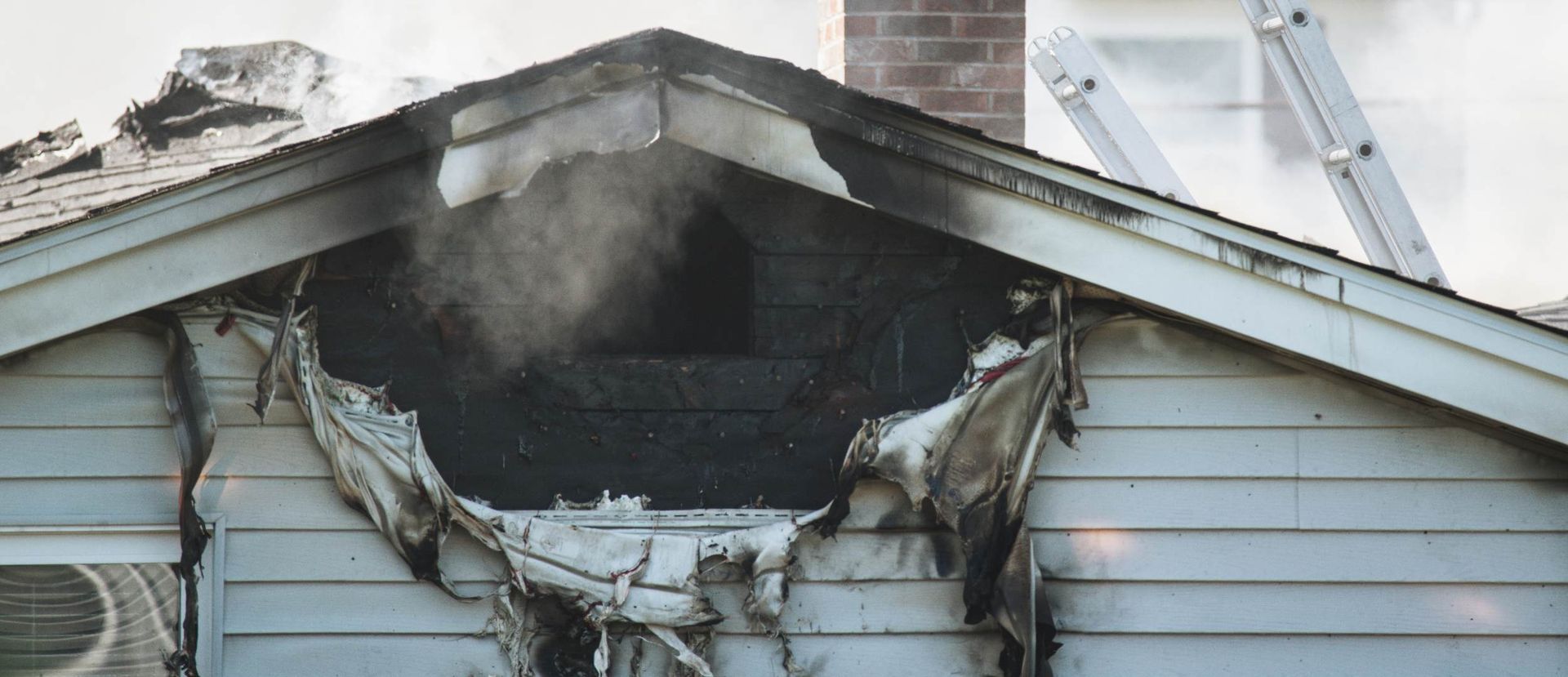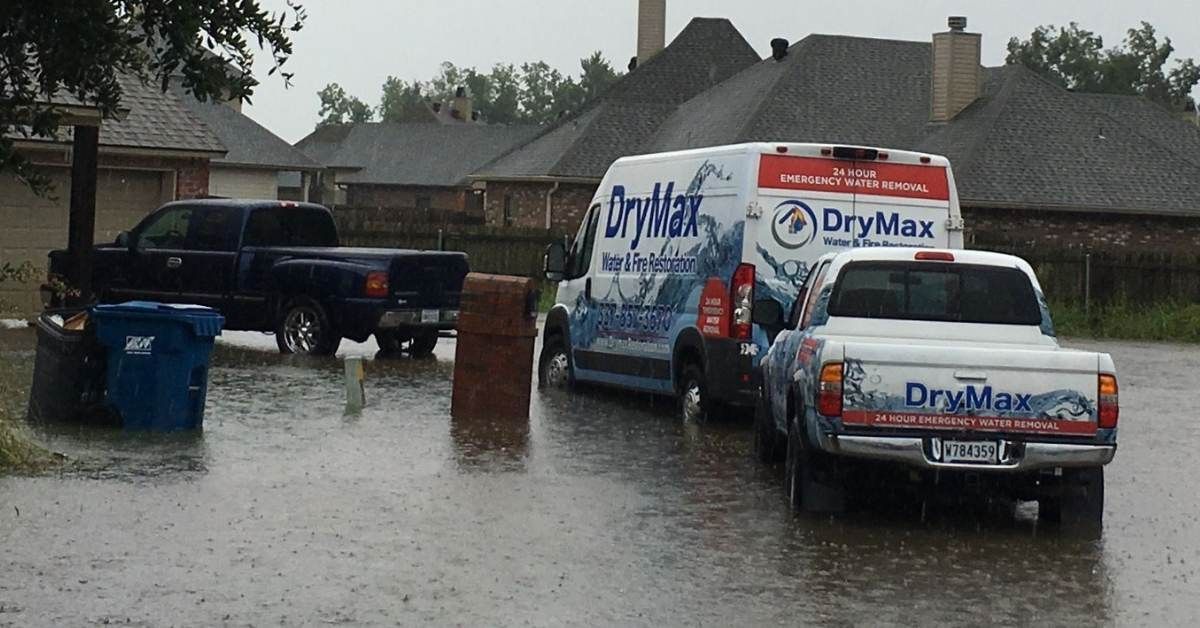Legal Aspects of Water Damage: Essential Insights for Louisiana Homeowners on Rights and Responsibilities
Water damage can create significant challenges for homeowners in Louisiana, from understanding the legal implications to managing insurance claims. Louisiana homeowners have specific rights and responsibilities when confronting water damage, which can be crucial in navigating the complexities of insurance coverage and contractor agreements. Knowledge of these aspects not only empowers homeowners to protect their investment but also ensures they can effectively advocate for their needs during a stressful time.
When facing water damage, homeowners should be aware of the terms of their homeowners insurance policies. Often, these policies stipulate what types of water damage are covered, and understanding these nuances can make a substantial difference in the claims process. In Louisiana, state laws provide additional protections, laying the groundwork for fair treatment by insurance companies and contractors.
Engaging with the claims process can be daunting, but Louisiana homeowners can enhance their position by documenting damage thoroughly and seeking expert advice when needed. Familiarity with legal rights can lead to more effective communication with insurers, ultimately facilitating a smoother recovery journey. With the right knowledge and resources, homeowners can confidently navigate the aftermath of water damage.
Understanding Water Damage in Louisiana
Louisiana homeowners face unique challenges related to water damage due to the state's climate and geography. Understanding the common causes, types of damage, and potential impacts is crucial for effective response and recovery.
Common Causes of Water Damage
In Louisiana, several factors contribute to water damage. The most prevalent causes include hurricanes, heavy rains, and flooding. During hurricane season, storm surges and heavy rainfall can overwhelm drainage systems, resulting in significant flooding.
Additionally, plumbing issues are common contributors. Old or damaged pipes can burst or leak, leading to internal water damage. Homeowners should also be cautious of appliance failures, such as washing machines or water heaters, which can result in localized flooding.

Types of Water Damage
Water damage can be categorized into three primary types: clean water, gray water, and black water.
- Clean water originates from a clean source, such as a broken water supply line, and poses minimal risk to health.
- Gray water contains contaminants and may arise from dishwashers or washing machines. It requires careful cleanup to prevent health issues.
- Black water is highly contaminated, often stemming from sewage backup or floodwaters. This type poses serious health risks and requires professional remediation.
Homeowners must identify the type of water damage to assess the appropriate response.
Structural and Health Impacts
Water damage can lead to severe structural issues and health risks. Structural impacts may include weakened foundations, rotting wood, and mold growth. If water sits for an extended period, it can compromise the integrity of walls and floors.
Health issues can arise from mold and mildew development. These fungi thrive in damp environments and can trigger respiratory problems and allergies. Prompt action to address water damage is essential to mitigate both structural and health-related concerns.
Understanding these aspects helps homeowners protect their properties and ensure a safe living environment.
Insurance Policies and Coverage
Homeowners in Louisiana face unique challenges regarding insurance policies and coverage related to water damage. Understanding homeowners insurance, flood insurance necessities, and policy exclusions are crucial in navigating these matters effectively.
Homeowners Insurance Basics
Homeowners insurance serves as a primary safety net for homeowners. It typically includes dwelling coverage, which protects the structure of the home against damages from various perils, including water damage from incidents like burst pipes or roof leaks.
Additionally, personal property coverage insures belongings within the home. This coverage can help replace items damaged by water. Many policies also offer liability protection, safeguarding homeowners if someone is injured on their property.
It is essential for homeowners to know their deductibles, as they represent the out-of-pocket expense before insurance kicks in. Most standard homeowners policies do not cover flood damage, making understanding the specifics of one's policy vital for adequate protection.

Flood Insurance Necessities
Flood insurance is crucial for homeowners in Louisiana, particularly given the state's vulnerability to hurricanes and heavy rainfall. Most conventional homeowners insurance policies exclude flood coverage, which necessitates purchasing a separate flood policy.
The National Flood Insurance Program (NFIP) offers federally backed flood insurance tailored to homeowners. Coverage options through the NFIP include building property coverage for the dwelling and contents coverage for personal belongings.
Specific limits apply, such as the maximum coverage available for a single-family home. Homeowners are advised to assess their risk and financial preparedness for flood-related damage, making flood insurance a necessity for comprehensive protection.
Understanding Policy Exclusions
Understanding policy exclusions is essential for homeowners to avoid unpleasant surprises during a claim. Homeowners insurance policies usually include a range of exclusions, which may not cover specific types of water damage. For instance, damages from groundwater or flooding are typically excluded from standard homeowners policies.
Other common exclusions may include damages resulting from neglect or improper maintenance. Homeowners should read their policies closely and consider additional riders or endorsements for better coverage.
Awareness of these exclusions can prevent significant financial loss during water damage incidents. Homeowners can consult with their insurance agent to clarify any uncertainties surrounding their coverage and exclusions.
Legal Processes and Rights
Understanding the legal processes and rights associated with water damage is critical for homeowners in Louisiana. Knowledge of how to file insurance claims, navigate the claims process, and when to hire legal assistance can empower property owners to protect their interests effectively.
Filing for Insurance Claims
When a homeowner experiences water damage, the first step is to file an insurance claim. They should document the damage meticulously, taking photos and notes to support their claim effectively. Insurance policies typically require policyholders to report the damage promptly, often within a specific timeframe.
The Proof of Loss is a critical document required by insurance companies. It outlines the damages and the claim amount requested. Homeowners must be clear and precise in their information to ensure the claim is processed smoothly. Familiarity with the specific claims process outlined by the Louisiana Department of Insurance can enhance the likelihood of a successful claim.
Navigating the Claims Process
Navigating the claims process can be challenging. Homeowners may face hurdles such as claim denials or undervalued damages. In such cases, understanding insurance law and the rights of policyholders is vital.
Homeowners should carefully review their policy to understand the coverage limits and exclusions related to water damage. Clear communication with the insurance adjuster is crucial; they are responsible for assessing the damage and providing an initial settlement offer. If the offer does not reflect the actual damage, homeowners can negotiate or seek an independent appraisal to argue for a fair resolution.

Hiring Legal Assistance
When disputes arise during the claims process, hiring a water damage attorney can be beneficial. Experienced attorneys understand the complexities of insurance law and can provide crucial guidance.
A water damage attorney can assist in navigating negotiations with insurance companies and may help with claims that have been denied. They will ensure all documentation is correctly prepared and submitted. Many homeowners opt for legal assistance to secure fair compensation, ensuring that their rights are protected throughout the process. Hiring an insurance claims lawyer could mean the difference between an inadequate settlement and a fair resolution.
Recovery and Financial Implications
Understanding the financial aspects of recovery from water damage is crucial for Louisiana homeowners. This section explores how to estimate repair costs, maximize financial recovery, and navigate denials or disputes with insurance providers.
Estimating Repair Costs
Accurate repair estimates are vital in the recovery process. Homeowners should obtain multiple quotes from licensed contractors to ensure they receive fair pricing.
A breakdown of potential costs includes:
- Structural Repairs: Foundation, walls, and roofs.
- Drying and Dehumidification: Essential for preventing mold.
- Restoration of Personal Property: Damaged belongings may need replacing or repairing.
It is advisable to document all damages with photographs and detailed descriptions to provide evidence for insurance claims. This thorough approach can help avoid underestimating or overlooking necessary repairs.
Maximizing Financial Recovery
To secure the best financial recovery, homeowners should understand their insurance policy’s specifics. Knowing coverage limits and deductibles helps in negotiating claims.
Additionally, it is beneficial to:
- File Claims Promptly: Delays can lead to complications in the claims process.
- Keep Detailed Records: Document communications with insurers and contractors.
- Consider Professional Help: Hire a public adjuster if necessary to advocate for fair compensation.
Being proactive in these areas can significantly increase the chances of a favorable settlement offer.
Dealing with Denials and Disputes
Insurance denials can be frustrating but are sometimes resolvable. Homeowners facing such issues should first review the reasons for denial and check for any errors in the claim submission.
Steps to take include:
- Request a Written Explanation: Clarifying the reasons can reveal misunderstandings.
- Gather Supporting Documents: Medical records, repair estimates, and photographs can influence the reconsideration.
- Appeal the Decision: Most insurance companies have an appeals process.
Engaging legal or professional advice may also be necessary to handle persistent disputes effectively. Understanding these processes can help homeowners advocate for their financial interests after water damage.
Prevention and Mitigation
Taking proactive steps can significantly reduce the risk of water damage in Louisiana homes. Homeowners should focus on regular maintenance and addressing pre-existing conditions to prevent further issues.
Proactive Measures for Homeowners
Homeowners should invest in regular inspections of their property. This involves checking roofs, gutters, and drainage systems for blockages or signs of wear. In addition, securing the foundation and ensuring proper grading can guide water away from the home.
Installing sump pumps in basements is another effective strategy. These devices help remove excess water, especially during heavy rains. Homeowners should also consider waterproofing their basements to provide an extra layer of protection.
Creating a comprehensive emergency plan is essential. This should include a list of emergency contacts, such as insurance providers and contractors. Furthermore, keeping an inventory of personal belongings can streamline claims with insurance companies after an incident.
Pre-Existing Conditions and Maintenance
Addressing pre-existing conditions is crucial to mitigate potential damage. Homeowners should be vigilant about signs of leaks, mold, or water stains, which may indicate underlying issues. Such conditions can worsen over time if left unchecked.
Regular maintenance checks, especially on plumbing and appliances, can prevent serious problems. For instance, homeowners should replace old or damaged hoses on appliances like dishwashers and washing machines.
It is also vital to maintain landscaping to avoid water pooling around the foundation. Grassy areas should slope away from the home's perimeter, and downspouts should direct water away from the building. By following these steps, homeowners can significantly decrease the likelihood of water damage.
Regional Insights on Water Damage
Water damage poses distinct challenges for homeowners in Louisiana, particularly in urban areas like New Orleans and Baton Rouge. Homeowners must navigate specific concerns related to hurricanes, flooding, and other regional weather phenomena.
New Orleans Specific Concerns
In New Orleans, the risk of water damage is heightened due to its geographic location and climate. The city is prone to hurricane damage and storm surges, which can lead to severe flooding.
Homeowners must be proactive in understanding their insurance policies, as many plans have specific exclusions for flood-related damage. It's crucial to identify if their coverage includes flood insurance, which is often required in high-risk areas.
When dealing with water damage claims, homeowners should meticulously document the extent of the damage. Taking photos and keeping receipts can streamline the claims process. Additionally, hiring a qualified water damage restoration contractor is essential for effective repairs and compliance with local building codes.
Baton Rouge and Vicinity
Baton Rouge experiences its own set of challenges concerning water damage. The region is susceptible to flood damage, especially during heavy rainstorms or hurricanes. The Tornadoes that occasionally strike the area can also contribute to significant property damage.
Homeowners should be aware of the need for robust home insurance policies that cover various types of water damage. Local regulations may dictate types of materials that can be used for repairs, especially in flood-prone zones.
Understanding the local water management systems is crucial for homeowners. Knowing how to mitigate risks, such as ensuring proper drainage around the property, can prevent future damage. Collaborating with local agencies can also provide insights into best practices for water damage preparedness and recovery.
Frequently Asked Questions
Addressing water damage involves specific legal steps, understanding neighbor disputes, and the role of contractors and insurance companies. Louisiana homeowners should be familiar with these aspects to navigate the claims process effectively.
What are the legal steps to take when experiencing water damage in Louisiana?
Homeowners in Louisiana should first document the damage thoroughly. This includes taking photographs and making a detailed list of affected items. Next, they should notify their insurance company to initiate the claims process as soon as possible.
How does Louisiana law address water damage claims between neighbors?
Louisiana law allows homeowners to pursue claims against neighbors for property damage caused by negligence. If water damage is a result of a neighbor's actions, the affected party can seek compensation by proving the neighbor’s responsibility in the matter.
What is the statute of limitations for water damage claims in Louisiana?
In Louisiana, the statute of limitations for filing a claim related to water damage is typically one year from the date of the incident. It is important for homeowners to be aware of this timeline to ensure they take action promptly.
Can homeowners in Louisiana recover damages from contractors for faulty water damage repairs?
Homeowners may hold contractors liable for negligence in repairs if it can be proven that the contractor did not perform their duties to the expected standards. This can include failure to fix water damage properly or using substandard materials.
How should Louisiana homeowners document water damage for insurance claims?
Homeowners should keep detailed records of damage through photographs, written descriptions, and repair estimates. This documentation will support their claim and help clarify the extent of the damage when dealing with their insurance providers.
What are the responsibilities of insurance companies in Louisiana regarding water damage coverage?
Insurance companies in Louisiana are required to act in good faith when processing claims. They must investigate claims promptly and provide clear communication regarding coverage decisions, ensuring that homeowners understand their rights and responsibilities in the process.




